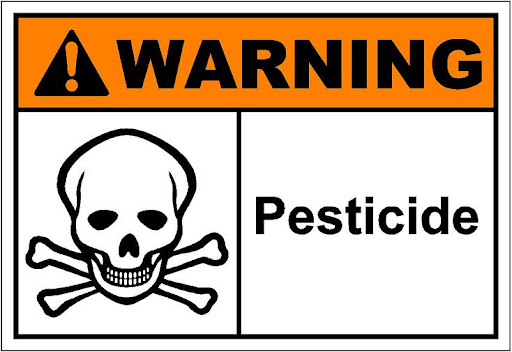NAFDAC warns against use of Aluminium Phosphide 560TB pesticides
The National Agency for Food and Drug Administration and Control (NAFDAC) has warned the public of the risk involved in using Aluminum Phosphide 560TB pesticides.
The warning was contained in a public alert with No. 009/2022 signed by the Director-General of the agency, Prof. Moji Adeyeye, and issued to newsmen on Monday.
READ ALSO: FUD receives N36 million grants to investigate high cases of kidney disease
Adeyeye said that the warning followed the report of the death of three (3) children as announced by the Zimbabwean authorities, who said the death of the children was as a result of them inhaling the pesticides that had been applied to maize for storage.
According to Adeyeye, Aluminum Phosphide (AlP) is a cheap, effective and commonly used pesticide.
It is used as a rodenticide, insecticide and fumigant for stored cereal grains to kill small verminous mammals such as moles and rodents.
She said that the pesticide is now one of the most common causes of poisoning among agricultural pesticides, and it liberates lethal phosphine gas when it comes in contact either with atmospheric moisture or with hydrochloric acid in the stomach.
According to her, the pesticide comes in different brand names such as Justoxin, Force Toxin, Phostoxin, Celphos, Multiphos and many more.
“The possible risk of this liquid chemical to the body is that human toxicity occurs either due to the ingestion of AlP (commonest mode) after exposure and injury from phosphine inhalation (uncommon) or even after absorption through the skin (rare).
“The signs and symptoms are nonspecific, instantaneous and depend on the dose, route of entry and time-lapse since exposure to poison.
“After inhalation exposure, patients commonly have airway irritation and breathlessness.
“Other features may include dizziness, easy fatigability, tightness in the chest, headache, nausea, vomiting, diarrhoea, ataxia, numbness, paraesthesia, tremor, muscle weakness, diplopia and jaundice.
“In severe inhalation toxicity, the patient may develop acute respiratory distress syndrome (ARDS), cardiac failure, cardiac arrhythmias, convulsion and coma, and late manifestation of hepatotoxicity and nephrotoxicity may also occur.
“NAFDAC implores distributors, retailers, and consumers to exercise caution in the storage, ensure safe and proper handling of the chemical product,’’ Adeyeye said.
The Director-General also advised members of the public to always read warning labels before purchase.
“Carefully follow label instruction for proper handling, proper application and proper storage.
“Ensure use of protective measures when handling pesticides such as wearing impermeable gloves, long pants, and long-sleeve, nose mask and safety glasses.”
Follow the Neptune Prime channel on WhatsApp:
Do you have breaking news, interview request, opinion, suggestion, or want your event covered? Email us at neptuneprime2233@gmail.com





